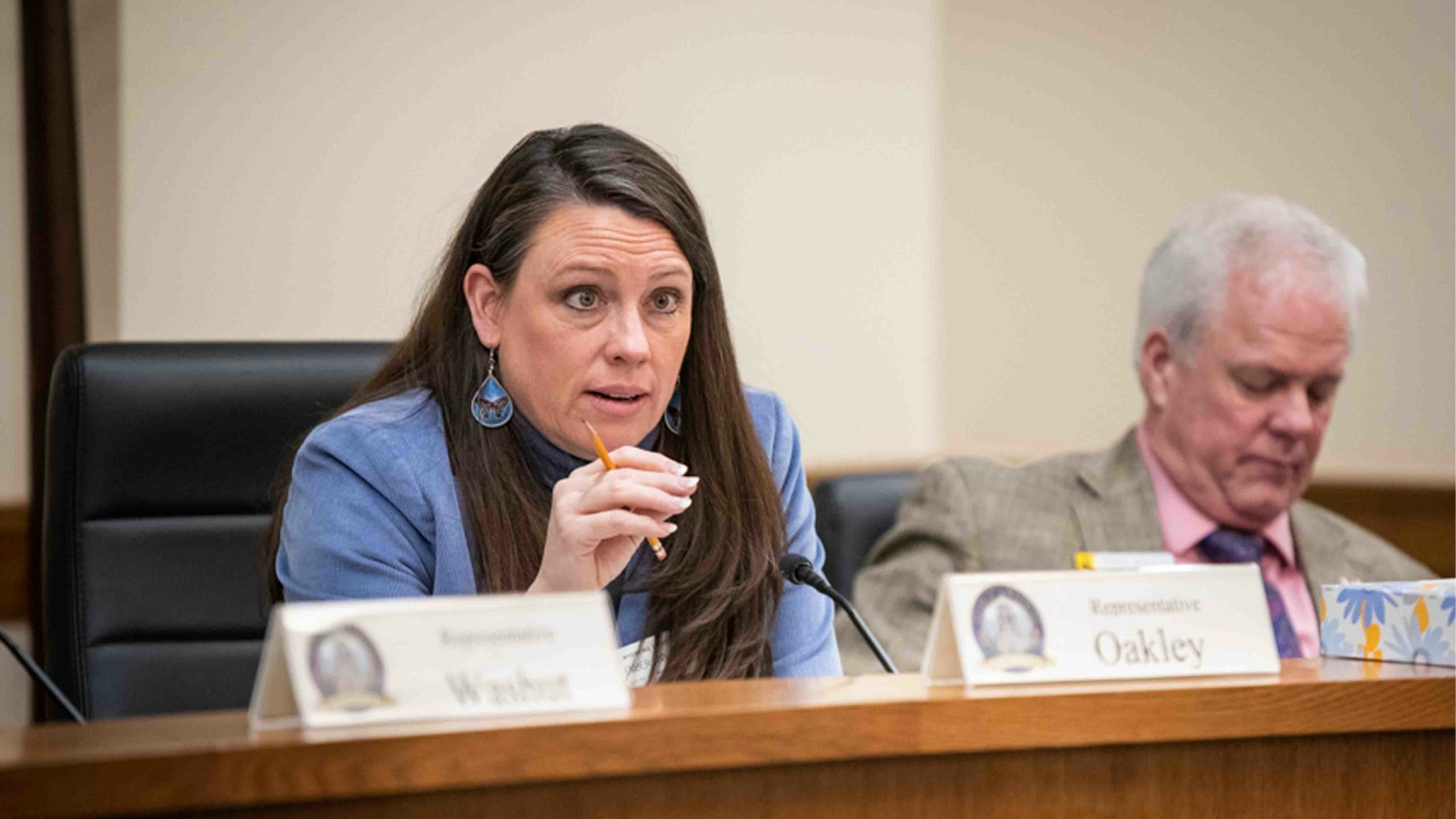A bill that make it a felony for pregnant women to use methamphetamine or illegal opiates is awaiting Senate review following its approval in the House on Tuesday.
But before it cleared the chamber on a vote of 46-13, House Bill 85 was amended to order Wyoming judges to sentence first-time offenders to probation and treatment rather than prison.
The stipulation was designed to address some legislators’ concerns that the prospect of a felony conviction would deter mothers from seeking treatment while pregnant.
Bill sponsor Rep. Ember Oakley, R-Riverton, introduced the amendment to her own bill on Monday during the House floor session and noted that such sentencing directions are not standard in state law.
“This is not done in any other offense in our statutes, so this would be groundbreaking,” she said.
Judges in Wyoming often have discretion in how to sentence convicted offenders.
“But hearing the concerns and trying to find the balance, I’ve crafted this amendment,” said Oakley.
The bill’s most vocal opponent, Rep, Karlee Provenza, D-Laramie, voted for the amendment along with the rest of the House, but voted against the bill every time it surfaced for a reading.
“(The bill is) still a bar between the woman and her physician,” said Provenza. “While I can appreciate the sentiment of this, I stand by what I said last week, which is the solution… is in health care statutes; is in making sure we have programs for them, not any form of punitive measures.”
The crime of meth use is a misdemeanor in Wyoming.
If HB 85 became law, using meth while pregnant would become a felony-level crime under Wyoming’s child endangerment laws.
Third Reading
The two delegates sparred again on Tuesday during the bill’s third and final reading in the House.
Provenza said she’d hope to see the issue addressed with treatment and counseling programs in the state’s publicly funded health systems instead of the criminal justice system.
Oakley said making more care available was a fine discussion for the body to have, “but what happens when (mothers) choose not to comply?”
“The answer is, I guess, never-ending expansion of government programs?” she asked rhetorically, then listed the government services and treatment opportunities that are available currently.
Even with all the programs, said Oakley, the prospect of a felony conviction would enable the state to “demand compliance and have that accountability” to ensure the “health and safety of many children as well as that mother.”





